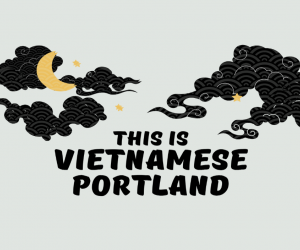main content Better Learning Through Chemistry
How do you teach an introductory course to a field that is both vast in content and fundamental to understanding inorganic chemistry? Associate Professor of Chemistry Anne Bentley is helping lead an innovative study funded by the National Science Foundation that unites a group of 20 professors and researchers from across the country to develop a groundbreaking inorganic chemistry course.
by Hanna Merzbach BA ’20

Bentley has been named a virtual inorganic pedagogical electronic resource (VIPEr) fellow in an innovative study to develop, test, and refine a flexible, foundation-level inorganic chemistry course. Funded by the National Science Foundation, this groundbreaking study unites a group of 20 fellows from across the country to identify and share effective teaching methods.
Bentley is the only fellow who is both a researcher and participant in the study. Although she started participating in the study this year, she has been involved in developing the VIPEr website since 2008 and part of the leadership team that manages the website since 2014. The website started as a venue for professors to share teaching advice.
“When I first got to Lewis & Clark, I didn’t have a lot of models on what to include in an introductory inorganic chemistry course—there’s this flexibility in the content,” Bentley said. “All of us [professors] have our own specialities, but we’re expected to teach such a big part of the periodic table… even people who have PhDs don’t know the whole subject. So the VIPEr website has been a good resource for sharing ideas.”
This spring, Bentley administered surveys and taped presentations in her 15-student Inorganic Chemistry Laboratory class. By studying these videos and those from other fellows, researchers aim to understand how different teaching methods affect student learning and interest.
The project encourages professors to adopt evidence-based classroom practices: teaching methods that have been proven to work for teachers and students alike. It also focuses on active learning, where students learn from doing instead of from lecturing.
“I try to get people to stand up and move around,” Bentley said. “Lecturing can be okay if you do it for 5 or 10 minutes and then move on to something else. When I’m just droning on, it’s not good for anybody.”
Syrah Starnes BA ’20, a chemistry and mathematics double major from Corvallis, Oregon, took Bentley’s course this past spring.
“The way Professor Bentley is teaching the course is very effective for almost all of the students,” Starnes said. “Unlike other chemistry courses where there is one assignment every week or more, we have a smaller problem due every class period that enables us to practice the skills we were taught the class before.”
By adopting proven effective teaching methods and greater resources, Bentley hopes students will benefit long term from this study and become connected to a nationwide network of inorganic chemistry professors.
More Stories

Textual Treasures
Paging Through the Past
In her Medieval Manuscripts course, Professor of English Karen Gross brings history to life with the help of Watzek Library’s rich archival collections. Students get hands-on experience with centuries-old texts as they explore the art of archival research.

Dance Moves
NYC-Based Dance Company In Step With L&C Students
The Tiffany Mills Dance Company, named for and headed by L&C’s director of dance, took part in a spring residency on campus, leading a series of community dance workshops and performing The Viola Trilogy alongside students.

Groundbreaking Science
A Quantum Leap for Physics Students
Ben Olsen, assistant professor of physics, is establishing Lewis & Clark’s first Quantum Information Science and Engineering lab to probe how unusual types of matter behave at the subatomic level. But first he and his students have to build “The Apparatus.”

Immersive Learning
Voices of Vietnamese Portland
Nhân Hàn BA ’27 and Thoan Nguyễn BA ’27, with project manager Zoë Maughan BA ’19, curated a 15-panel, bilingual traveling exhibit highlighting stories from Vietnamese Portland: Memory, History, Community, an archive documenting experiences of Vietnamese Portlanders.
